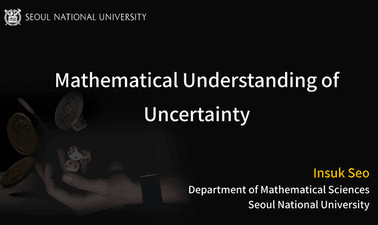HarvardX: Introduction to Probability
Learn probability, an essential language and set of tools for understanding data, randomness, and uncertainty.

- Duration
- 10 weeks
- Price Value
- $ 209
- Difficulty Level
- Intermediate
Learn probability, an essential language and set of tools for understanding data, randomness, and uncertainty.


Offered by HarvardX
Embark on a transformative journey into the world of probability and statistics with this comprehensive course offered by HarvardX. Designed for intermediate-level learners, this course equips you with the essential tools to navigate and interpret a world filled with randomness and uncertainty. From medical testing to sports prediction, you'll gain invaluable insights that can be applied across various fields, including data science, engineering, economics, and finance.
Note: While calculus is required for some units, the underlying concepts can be learned concurrently with a calculus course or through self-directed learning.
By enrolling in this course, you'll gain a competitive edge in today's data-driven world. Whether you're aiming to advance your career, improve your decision-making skills, or simply satisfy your curiosity about the laws governing randomness and uncertainty, this course offers a comprehensive and engaging learning experience. Don't miss this opportunity to master probability and statistics with HarvardX and unlock a world of possibilities in data analysis, engineering economics, and beyond.
Explore more courses to enhance your cloud computing and Kubernetes skills.

This lecture series discusses how the concept of probability can be used to handle, control, and exploit uncertainty in the real-world. It is an undergraduate-level lecture series on probability, but is entirely different from the usual courses on probability theory. The lectures cover the basics of probability theory including the relevant mathematics, but instead of focusing on mathematics, the lectures explain how probability theory can help understand real-world uncertainty using various examples. The examples are used to describe how uncertainty can be exploited to implement modern randomized algorithms such as Markov chain Monte Carlo and deep learning.

This course discusses properties and applications of random variables. For instance, how many customers are likely to arrive in the next hour? What’s the probability that a lightbulb will last more than a year?
When you’re done with this course, you’ll have enough firepower to undertake a wide variety of modeling and analysis problems; and you’ll be well-prepared for the upcoming Statistics courses.